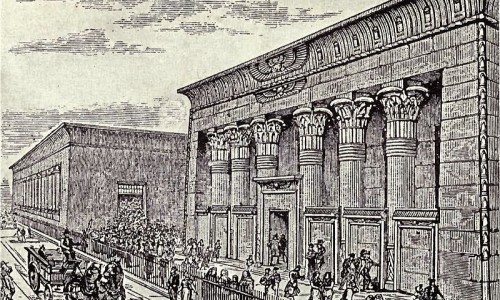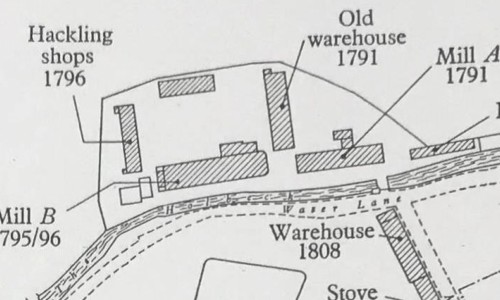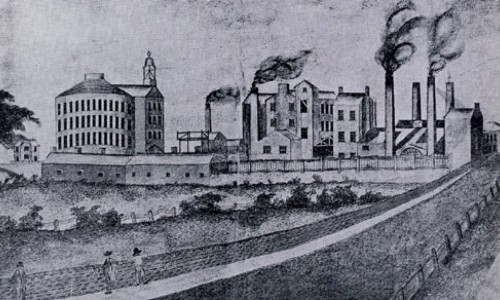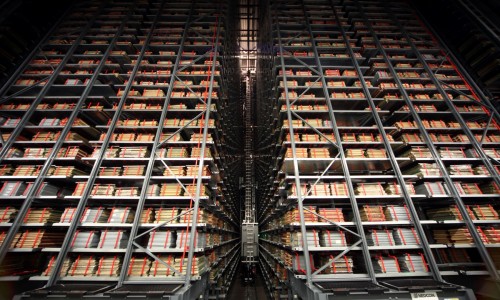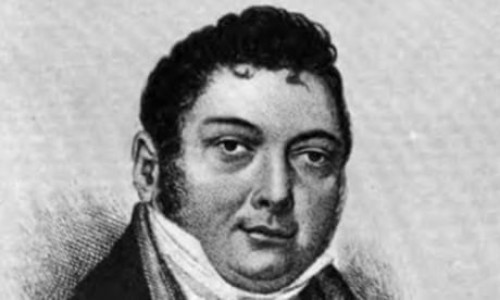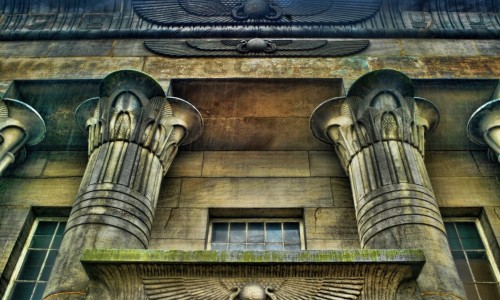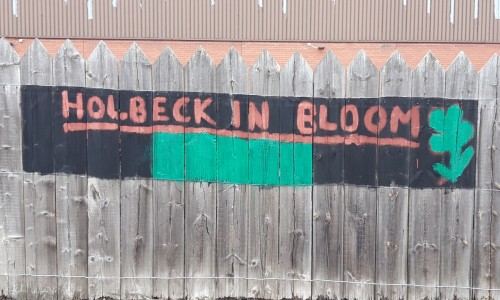Hope and Expectation: How Life Experience are bringing resilience to South Leeds
January 22, 2020
.jpeg&w=1000&h=600&zc=2&a=l)
Resilience is something everybody needs. However well your life is going and whatever circumstances you live in, you need resilience; spirit, strength and resistance. Because we all face things that test our character and how we deal with them often defines us. Some challenges are bigger than others, and bouncing back from illness, misfortune or mistakes can require a special kind of resilience.
In fact the word ‘resilience’ often doesn’t seem a strong enough word when assessing how people respond to hardship and everything life throws at them. There is resilience in terms of survival, and then there is some other mystical quality required to truly bounce back and reverse your fortunes in the face of a tidal wave of opposing forces. Whatever that quality is, Phil Pearce has it.
South Leeds is a special place, with thriving communities, a strong identity and a unique energy and spirit. But like most similar examples of inner city Britain, it has its problems and it wears them on its sleeve. Like a caustic slab of an unavoidable truth, South Leeds has anti-social behaviour, drug use, bullying, burglary, prostitution and the emerging threat of knife crime. And how do you escape it?
Phil Pearce lives in Beeston, and has done all his life. He’s lived through all of that and come out the other side, grateful for the opportunity to view it all now from a diametrically-opposed perspective. Phil now runs Life Experience; a social enterprise project aimed at the sharp end education of young people in the many perils and consequences facing them in the urban jungle of 2020.
“I started Life Experience five years ago,” Phil begins as we share a cup of tea round his kitchen table “and it started after I came home from my second prison sentence, so I went through ten years of drug addiction, which started when I was 20 years old and I spent my 30th birthday in prison. And when I came home I was volunteering for West Yorkshire Probation. I was asked to do a talk in a school about life choices basically, and I went in and talked about some of the stupid stuff I’d done. I got such a good response from young people talking to me about how it gave them a bit of hope about their parents or brothers who are in prison and using drugs. And if I can change my life then maybe they can change theirs? So I just got this bug for it and it’s expanded from me going in and doing a talk, to, I wrote a play about spice accidently when I was in prison and I woke up with this thing in my head and it was just a conversation between three prisoners but it was all poetry, and at that point I’d never written poetry in my life, probably just in my sister’s birthday card, but that was it.”
Phil referred back to this poem about drug use for one of his early classes, and while he didn’t have one single moment of epiphany, it quickly dawned on him that he could take a different, more artistic approach to educating young people and use poetry, music, video and theatre to more directly and coherently get a message across, as Phil explains.
“We thought ‘why don’t we get four people with their own lived experience and instead of it being just ten minutes at the end of a presentation we could go in for an hour or two hours and we can all do our own thing?’ And it all just blew up from there, from something random to dedicated people delivering specific sessions around drugs or bullying, knife crime or general choices and consequences.”
In a classic role reversal, Phil is now preaching the truth through the eyes of someone who has lived it and done it and made every mistake in the book. On a grass roots level it clearly works, as Life Experience’s list of successes with schools, prisons and community groups across the region testifies.
“It’s about us getting our messages out, however that looks,” Phil continues “so it starts off verbally and then over the last six months we’ve got a bit of funding which has meant I’ve been able to leave my two jobs and do this full-time, so now it’s more ‘what other ways can we get messages across?’ There’s poetry and videos and we’ve got all sorts of crazy ideas for 2020. But Life Experience is basically ‘this is me, this is what I’ve been through’. That’s the ethos of us and then we get creative with the way we deliver.”

(Photo credit: Life Experience - Phil delivering a Youth Parliament session)
What started off as a self-motivated and self-funded project in his own backyard of South Leeds has evolved into a much-lauded and very welcome enterprise, with a feast of grappling hands desperate for Phil’s time and attention.
“The funding we’ve got covers us for West Yorkshire,” Phil explains “and that’s from the police crime commissioner, but I self-funded for four years. I’ve done work in prisons in Hull. We’ve got some youth work sessions in Grimsby, we’re doing quite a lot in Stockton and Middlesbrough, so if there’s a need for the work we do, then we’ll do it. The police from Liverpool rang me last week about doing some projects with them, so it’s really about where the need is for us.”
Evidently, the USP that Phil has is the ‘lived experience’ that gives him and his work the kind of first-hand involvement and specialist credibility you can’t exactly study for. There’s only one way you can get that experience, but thankfully now it can be used to stop a bullish but vulnerable teenager in his or her tracks and open their eyes to the potential of a world of pain.
“The police have realised this in recent years (that ‘lived experience’ is a better vehicle through which to communicate a message) and they have asked us to deliver for them, so we did a big session at Wakefield Head Office where they brought 100 identified kids and we delivered our project to them alongside The Street Doctors (a volunteer group teaching lifesaving skills to young people at risk of youth violence across the UK) and various other organisations, that was all around knife crime, and when I was young I would have been the same. If you’re trying to tell a young person about the effects of drugs, you can study and research what effect it has on your body, but if they say ‘what does it smell like?’ ‘What does it taste like?’ ‘What does it make you feel like?’ It’s all stuff that you can’t answer without that sort of lived experience. And my job is literally, if you tell me what the issue is, we will find someone with that lived experience and coach them in the key points of their story that they need to deliver to get that message across.”
Measuring success is difficult without a window into the future and drilled-down stats on crime and drug use. For now you can only make projections, but you can also partner with other people, groups and organisations and combine efforts that will spark change, modify perceptions and bring a sense of hope to embittered communities.
“I’ve lived in Beeston all my life,” Phil continues “and I’ve been here 36 years and it would be weird if I ever moved away from here. We never used to have problems and I wrote a piece of poetry about growing up in Beeston and about how the community spirit has changed, and when that was released loads of people got in touch about stuff that is going on in Beeston and I found out about lots of different groups and organisations. And so I started spending time with some of these groups and finding out about some of the issues, so we’ve been doing youth work in Holbeck with Re-Establish, who are absolutely amazing. They run youth work sessions every week but they spend the whole summer holidays in Beeston Park doing sessions for young people, and we do a lot of the schools around here too. Knife crime has not really been a big thing in South Leeds but it’s starting to creep in now; it’s usually been the other side of Leeds city centre. Drugs has always been a problem, so the work we do is more about information, just raising awareness and posting on Facebook. I don’t know if people might see them as controversial posts, but it’s just a way to spark conversation, especially if there’s a news story. I’ll ask a question and it usually ends up with people arguing in the comments, but it’s a good way of getting people to understand other people’s perspectives about stuff. The councillors round here are brilliant, they’re all very pro-active, but there’s a lot of things that they can’t do, or there’s not really a quick fix for a lot of the problems that they can achieve, so we help out within the community wherever we can.”
The council are one essential partner in bringing change of course, but Life Experience also have one eye on the wide-scale regeneration planned for the South Bank area of Leeds over the next few years. As members of the Leeds Citizens collective of organisations, Life Experience participated in the recent ‘South Bank for South Leeds’ launch event at Slung Low’s ‘The Holbeck’, with Phil delivering a passionate, stark and illuminating poem on the harsh realities facing everyday members of the population of South Leeds. Simply called ‘South Bank’ (you can watch a video of this poem below) it left the room enthralled and aghast, and delivered a message with a sledgehammer reality, including to the assembled representatives of CEG, the development group behind ‘Temple’, the lead regeneration project in the South Bank area.
(Phil Pearce: South Bank)
“The impression I’ve got from the few people I spoke to at that event, it feels like they’ve (CEG) got a track record of positivity. I got into a conversation with a Facebook group in Castleford recently and they were complaining about problems that they had, and my response was ‘what are you guys doing about it?’ ‘Why’s it our job?’ they said. So I said ‘I’ll come across and I’ll bring some people together who can combat this’. It was about street drinking in the town centre and people using drugs, so we brought in some people from ‘Recovery’, some people from recovery agencies, some probation people and ‘let’s make a plan where we combat this’. So we did it and we put a team together, and then I stepped back, because all they needed was that push, they were already passionate about it. And I think that’s the same with ‘Leeds Citizens’, I think if enough people want something there’s a way you can be heard and I absolutely love that power. And that’s what we’re hoping with CEG, that they see that kind of passion that exists in South Leeds. There’s an art studio in Beeston that’s a house and the people who live there – the artists – allow you to come in and it’s like an art gallery. They were on about building a sculpture and straight away, as soon as the story came out it was like ‘oh what’s the point in putting something like that in Beeston? It’ll just get vandalised’ and ‘it’s just this and just that’. And it’s like, we don’t have any pride in where we live anymore.”
Regeneration is about a lot of things; bringing jobs to an area, offering training and educational opportunities, offering recreational space in daytime and night time, offering healthcare facilities, as well as offices, homes, shops, cafes and restaurants. But most of all, it is about restoring pride in an area, and South Leeds needs that, arguably more than anywhere else in the country.
“Everyone felt genuine,” Phil explains when asked to reflect on CEG’s presentation at the launch event “you felt like these things were going to happen. It didn’t feel like a political dodge or just saying what we wanted to hear. For me it’s about South Leeds and if there’s a way that Life Experience can help. On that day it was Life Experience but it was also Phil from Beeston at that meeting, so if there’s any way that we can contribute towards that, then great. Things like youth groups, we’ve got nowhere for young people and we need to look at the number of young people who are in South Leeds and the amount of crime and anti-social behaviour, which all boils down to boredom. Things like that, and rooms for our older people to go dancing, like a Tea Night, we don’t really have social spaces like that.”
Undoubtedly the Leeds Citizens launch event carried a lot of positivity, and it is genuinely an exciting time. And even if Phil’s poem struck a dark and uncomfortable chord, it ended with an over-riding message of hope, and the Temple regeneration plans to carry that expectant message over the next few years of change in South Leeds. Because first and foremost, this is all about expectation and trying to find ways to provide the basic infrastructure that people should anticipate as a pre-requisite if there’s any hope of leading a happy and wholesome life.
“There’s a Facebook page for the whole of Leeds” Phil continues “and people put in there ‘oh I'm thinking of moving to Leeds, where’s good and where’s not?’ and it’s always ‘don’t go to Beeston, don’t go to Holbeck, don’t go to Armley, don’t go to Chapeltown’. I don’t want to be in that Top 5, so it’s ‘how can we contribute towards that?’ I’m in a lucky position in that I’ve been here all my life, but then with the work we do, I feel like we’ve got a lot to offer in that sense as well. But for me it’s relationships. I wouldn’t go to meet anyone from CEG with a plan for ‘what’s in it for me?’ It would just be to find out a bit more about that person. I love meeting up with new people and finding out what they’re about. When I was at the event they both (CEG representatives) came across really, really well. They were people that I’d want to meet and find out more about, people we’d like to partner with. Like the police crime commissioner who we got funding from, whenever I see him we never talk about money, we’ll talk about the (Leeds) Rhinos game, I don’t always want my working relationships to be about work, because it’s nice to get to know people.”

(Photo credit: Life Experience - Phil and the Life Experience team winning the Child Friendly Leeds award)
Idealistic visions of the future, however, can’t mask the problems in the here and now. And while Phil’s work through Life Experience is taking him further afield to areas across the North, he is frequently reminded of the troubles faced by people in South Leeds.
“There was a young man stabbed and killed on Dewsbury Road a few days ago (before Christmas). That was between 5.15-5.30pm. At the same time I was in McDonalds on Hunslet Hall Road speaking to two police officers, saying I was doing all this work everywhere else apart from South Leeds, and ‘can you put me in touch with people who are already running youth groups?’ We’ve done bits in schools and the police cadets up at Coburn High School and we do Re-Establish Youth Group, but we don’t really have anything focused, and this is where I live and this is why I want to be doing stuff here. And as I’m handing the police officer my card he’s saying ‘thanks I’ll get someone to get in touch’ he goes to his car and the flashing blue lights come on immediately and he was called straight to that incident.”
Alas, hope isn’t a currency that has any value, other than as an essential element in building resilience. You have to have hope as something to strive for, and you have to hang on to it in the face of some deep-rooted issues you can’t necessarily find a quick answer to.
“The problems we have here,” Phil explains when assessing the work Life Experience do in South Leeds “is that a lot of it is inherited, so you have some parents teaching kids how to commit crime, you have parents asking kids to get refunds on stolen goods. If you were to take one of those kids and try and get them on the straight and narrow, you’re not just taking the child away from the parents, you’re taking a source of income, so that’s one of our biggest struggles, because we don’t know what we can put in place for that. With drugs and with knife crime you can scare kids into not doing that in the first place or showing them what the consequences would be if they were to carry on, but when they go back home, if they’re not getting the same message……..”
Hope comes in the sense that kids can be educated to follow a different path and can then be offered opportunities to work or train in areas and establishments open and accessible to them. This is where partnerships between Life Experience and CEG become a source of hope and where you can start to map out a visible pathway towards a better way of life for individuals who have thus far, never known an alternative. Regeneration, if you like, can provide some resilience for people, but it needs individuals like Phil to stand up and make a difference, to use resilience as a positive force.
“For the last five years we’ve never been pushing our work down anyone’s throat,” Phil asserts “we’ve never been asking for money and we’ve always had a good relationship with anyone we’ve been in contact with, it’s not been too difficult to make relationships, especially with the line of work we’re doing. We don’t charge, we ask for donations, so pay us if you can pay us, if you can’t we’ll do it for free, we don’t want money to be more important than the message we’re trying to give. We’ve just won a funding bid, and it wasn’t too much about what was in the funding bid, it was more about our work history, everything we’ve done in the last few years.”
Perhaps Phil is an extreme example of what you can do to turn your life around, when in reality it is enough of an effort just to stop going down a certain path and simply apply yourself positively to work, training or education opportunities. But certainly Phil stands as an inspiring illustration of what can be achieved when you make the right life choices and get the right support, and his organisation is a beacon of hope that is fighting the good fight in a challenging and creative way that clearly resonates with young people in a critical manner. But not only that, Phil is still fighting to channel his own hyperactive mind and an addictive personality in a positive way too.

(Photo credit: Life Experience - Phil delivering some police collaboration work in Bradford)
“It’s opened up so many opportunities,” Phil beams “and part of me believes it’s because we do so much good work and we’re different in that we have this creative side. There’s lots of organisations who do work around knife crime and I’m not saying we’re better or worse than them, but we’re different. We’ve got a project where we’re looking at 360 degree videos and virtual reality mixed in with poetry and a live theatre thing we’re doing around county lines (where big city drug gangs expand their operations to smaller towns). I had got through ten years of addiction and my head used to work at 100 mph, when I stopped using drugs my head didn’t change, so it’s still constantly firing questions ‘what about this? What about that?’ and somebody will be talking to me about something and I’ll already be three steps ahead of them and I’m like ‘don’t say it, don’t say it, they’ll get there’. I was once asked if I could change that (an addictive personality), would I? But I don’t feel like we would have achieved as much as we have if one project would have been enough to settle my mind. If I’m not doing enough I look for more things to do, but life’s hectic sometimes.”
For now, it seems, Phil has found a balance and plentiful goals to keep him occupied.
“By this time next year,” he concludes “what I want to be doing is meeting up with the police or Leeds United Football Club or CEG or whoever it is, and asking them ‘what are you trying to achieve? If you’re wanting to do community work, what do you want out of it?’ And then going away and thinking about a project and writing a funding bid and sending that off, getting the funding and then paying someone to deliver that, and then going to the next meeting and saying ‘right, what do we need to do?’ That would be my ideal role with Life Experience.”
And there in a nutshell is the art of resilience; finding something else, something positive, to channel your energies into. Because we all have energy, we all have ideas, we just need to find the right output to not just survive, but to thrive. Phil is lucky that he found one, but through his work and partnering with other like-minded organisations, hope still exists, and the hope is that outputs will soon be more plentiful in South Leeds, and that luck won’t come into it.
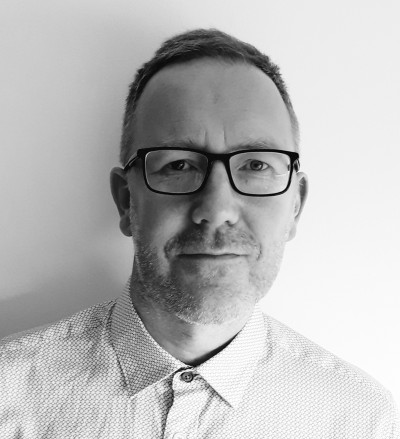
.jpg&w=500&h=300)
